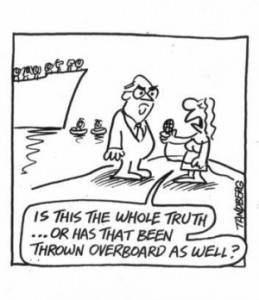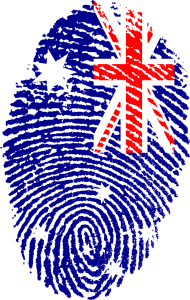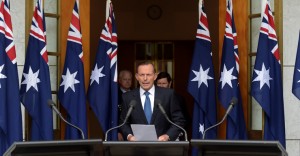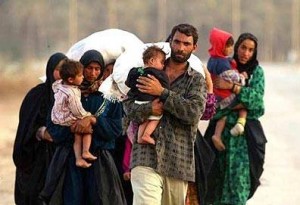This past week our world was again reminded of the stark and devastating reality that we are facing a crisis of displaced people, due to war and natural disasters, unparalleled since World War Two. The image of a tiny Syrian boy, drowned at sea whilst seeking refuge, whose body had washed up on the idyllic shores of the Turkish resort town, Bodrum, sent shock waves through the global village. Tony Abbott, the current Australian Prime Minister, in his rather predictable manner, used this heart-wrenching moment to drive home his political ‘tough stance‘ on asylum seekers: “I would say, if you want to stop the drownings you’ve got to stop the boats.” As many parts of the world are frantically seeking to adjust in order to help a multitude of destitute and vulnerable people, Australia continues to take an austere approach to those seeking asylum, drawing harsh criticism.
Australia’s current policies and attitude towards asylum seekers is built on a certain set of ideas. Ideologies that have developed over time, and which originated amidst the hardship, scarcity and survival fears experienced by the first European settlers. Ideologies are all about a set of beliefs about the proper order of society. Shared ideologies communicate beliefs, opinions and values of a particular social group, society or nation. So what are some of the ideas that have shaped the Australian collective psyche and causes so many people to support the extremely harsh measures towards ‘boat people’?
I would contend that there are four major propositions that have shaped Australia’s social conscience towards asylum seekers. Unless we find ways to address these deeply embedded paradigms we will not see a change of the current felt antagonism and indifference. Following is a brief summary of the ‘Big Four’ that politicians and those in power have used for their advantage (a link to a full discussion paper is provided below):
1. Nationalism
Two foundational blocks upheld Australia’s imagined ideals of nationalism. Firstly, the refusal of colonisers to recognise the Traditional Owners of the land. European settlers declared Australia terra nullis on their arrival, dismissing the many Aboriginal tribes as barbaric and entirely destitute of even the rudest forms of civil policy. Henry Reynolds estimated that at least 20,000 Aboriginal people died as a result of white settler genocide. The full degree of atrocities will never be fully known. Yet Australia continues to celebrate its National Day on a day of mourning for many Aboriginal and Torres Strait Islander peoples – the celebration of a race at the expense of another.
Secondly, they saw themselves very much part of the British Empire and the ‘British race’. These perceptions continue to linger to this day. Recently reinforced by Tony Abbott when he addressed the Australian-Melbourne Institute of Economic and Social Outlook: “Our country is unimaginable without foreign investment. I guess our country owes its existence to a form of foreign investment by the British government in the then unsettled, or, um, scarcely settled, Great South Land.”
Nationalist ideologies that are built on Anglo-Celtic ideals do not bode well for those seeking asylum on Australian shores as they create negative imagery of ‘otherness’.
2. Racism
 d and the Defense Minister, Peter Reith, stuck to this distorted version until after the 2002 election. Hugh Mackay observed that, “the ‘children overboard’ incident…shows us how vulnerable Australians have become to political spin.” I would argue that the vulnerability of the Australian society to racist spin is a direct
d and the Defense Minister, Peter Reith, stuck to this distorted version until after the 2002 election. Hugh Mackay observed that, “the ‘children overboard’ incident…shows us how vulnerable Australians have become to political spin.” I would argue that the vulnerability of the Australian society to racist spin is a direct but it is the intertwined ideas surrounding security in those circumstances that robs people of agency, choice and freedom. In cases like Tampa or the World Trade Centre attack, citizens look to their leaders for guidance and assurance, and if they believe their security is at risk they will accede to ideologies based in fear and prejudice. By alluding to asylum seekers as security threats the government was, and is, able to portray a defence of autonomy and sovereignty, while turning society into pliable and passive subjects.
but it is the intertwined ideas surrounding security in those circumstances that robs people of agency, choice and freedom. In cases like Tampa or the World Trade Centre attack, citizens look to their leaders for guidance and assurance, and if they believe their security is at risk they will accede to ideologies based in fear and prejudice. By alluding to asylum seekers as security threats the government was, and is, able to portray a defence of autonomy and sovereignty, while turning society into pliable and passive subjects.Suvendrini Perera probes the effect of geographical insularity on Australian thought and identity, linking it directly to historical violence in order to impose white insularity and exclus ivism: “The plotting of Australia as an insular formation both expels the ‘foreign’ bodies around its edges and encloses Indigenous peoples more closely within clearly demarcated borders.” She forms a strong case to demonstrate that it is ideas of insularity, sustained by colonial myths of terra nullis and ‘Robinsonian fantasies’, that undergird the violence, racism and exclusion that are at work in events such as the Tampa crisis or the brutality of detention centres.
ivism: “The plotting of Australia as an insular formation both expels the ‘foreign’ bodies around its edges and encloses Indigenous peoples more closely within clearly demarcated borders.” She forms a strong case to demonstrate that it is ideas of insularity, sustained by colonial myths of terra nullis and ‘Robinsonian fantasies’, that undergird the violence, racism and exclusion that are at work in events such as the Tampa crisis or the brutality of detention centres.
In conclusion, ideologies shape a nation’s policies and worldview. Modern day Australia has a constructed set of ideologies still inherent in its convict past. These shared perceptions have been shaped through hardship and survival fears, and propagated through political rhetoric and mass media. Last week we saw the horrendous image of a little boy, representing thousands of refugees, who lost his life trying to find a better tomorrow. Australia cannot continue this path of national delusion and escapism. We have to lay aside ideological fallacies, step up and become responsible global citizens.
(Read the complete document: “The ‘Others’: How have ideologies, shaped by Nationalism, Racism, Insularity and National Security, influenced current Australian attitude and policies towards ‘Boat People’?”)


